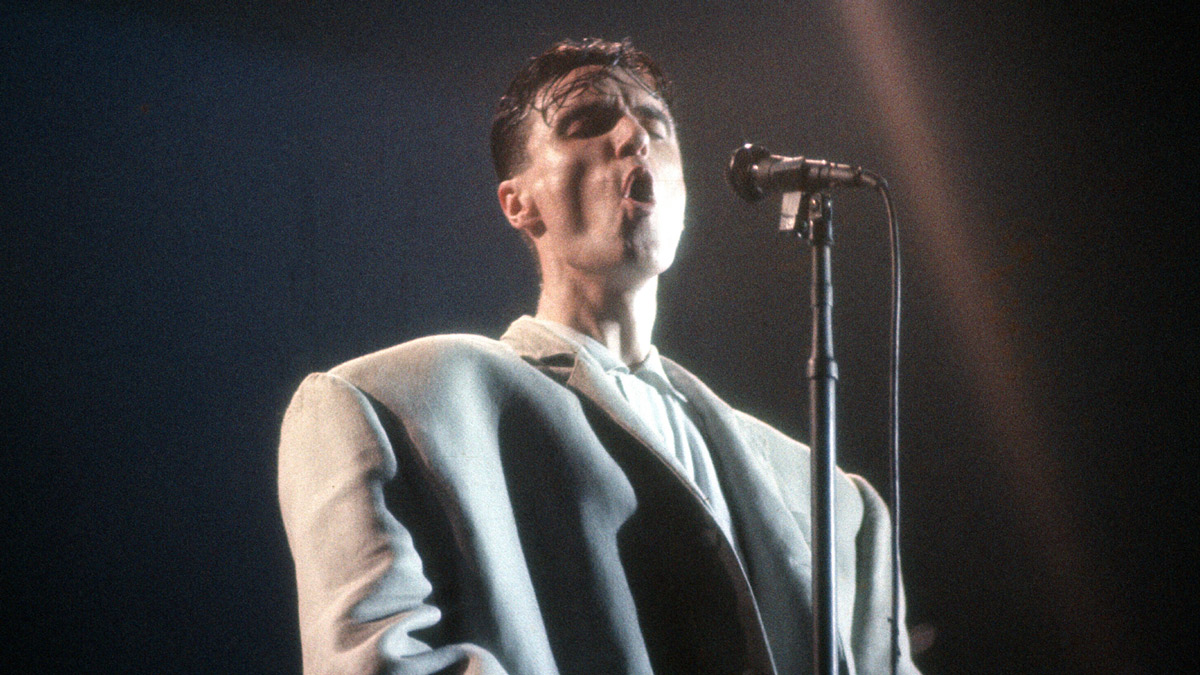
(c) Photofest / Getty Images
“Stop Making Sense” A music movie that you can “experience” created by Talking Heads and Jonathan Demme
2021.05.28
A monumental work that changed the nightlife of Tokyo in the 1980s
As mentioned above, the film did not have enough money to make right away, and the members of Talking Heads ultimately financed it, but as soon as it was released in the United States in 1984, it became a cult hit and became a long-running box office hit. It became. However, it was not easily imported to Japan, and the soundtrack album was released first. The film was ultimately distributed by Kuzui Enterprises, an independent company, and this was their first distribution. I was able to talk to Mr. Hisao Endo, who used to work for Kuzui, about the secrets of the company's advertising over the phone, so I would like to introduce him to him.
``One of the most memorable advertisements I'll ever remember is when I posted a job ad in Part-Time Job News.It's just a job information magazine, but I didn't have enough money to advertise it, so I used that frame to promote a movie.'' I used it. “Finally released! I put out a job posting with an eye-catching title like ``Stop Making Sense'' and said ``Advertising Person Wanted''.Actually, my job was to pass out flyers, but it wasn't a false announcement.''As a result, A long line formed in front of the small office building above a small liquor store in Shibuya for the interview.
``From that moment on, I could see that there was a lot of interest in the movie, and I had a feeling it would be a hit,'' says Endo. However, getting to that point wasn't easy. Since he was a newbie as an advertising man and the company did not have strong connections in movie theaters, he began advertising without much effort. ``First of all, we had to find a movie theater where we could show it, but it was quite difficult...'' In the 1980s, the film industry was still very closed, and mini theaters were in their infancy. Times are tough for independent companies.
``I felt that it would be difficult to do a daytime show.That's when I came up with the idea of a late show show.Actually, there is a reggae movie that I was personally involved in called ``Reggae Sunsplash'' (1980). I put it up at the nightly show at Theater Apple in Shinjuku.When I told the president about this, he came up with another idea.''
As a result, Kabukicho Cinema 2 in Shinjuku and Joy Cinema in Shibuya became interested in late-show performances. The movie theater usually plays movies that are more popular with the public, but they said they could play the movie because it was open at night and there was less risk. Baus Theater in Kichijoji was also looking for a new direction at the time, so they agreed to the idea.
Late shows were decided to be held at three theaters in Tokyo, and an advertisement was placed on the back cover of the magazine ``Takarajima'' with a recommendation comment by Sosuke Ishii (currently known as Gakuryu), and the advertisement was used as a flyer. In addition, the fashion brand ``Men's Bigi'' made original T-shirts and had posters put up in each store (the black-and-white posters had the words ``Why big suits?'' written on them). I also had this company make an original movie of about 30 seconds for advertising purposes. Although such collaborations with fashion brands are common today, they were quite rare at the time. In terms of being unusual, late shows at commercial movie theaters like Shibuya Joy Cinema were also a new idea at the time.
Although the film started advertising without much effort, it gradually gained momentum among those in the know, and after its release it became a long-running film (I still can't forget the long line that formed in front of Joy Cinema on Koen-dori in Shibuya. Can not). ``Perhaps it was successful because the publicists stood in the same perspective as the audience and spread the word about the good points of this movie.I think it is a very condensed work. I think it's more than a concert movie."
"American Utopia" trailer
Endo was also excited about David Byrne's new film, `` American Utopia .'' ``Byrne has aged well.I also think Spike Lee did a really good job as a director in this movie.This new work can be called a piece of theatrical art, and I think he and Byrne are doing well on stage together.'' The 11 friends who join the group are also charming.I think this is a work with nothing wasted.”
After the success of this film, Kuzi Enterprises also distributed Spike Lee's first feature film, ``She's Gotta Have It'' (1986), and Percy Adlon's ` `Bagdad Cafe '' (1987). As a result, he changed the way independent films were made.
The trend of independent filmmaking and distribution has continued into the present era, and this time, ``American Utopia'' was completed, incorporating new creativity from David Byrne's idea.
Jonathan Demme, director of ``Stop Making Sense,'' passed away in 2017, but his name is credited as a ``special thanks'' in ``American Utopia,'' praising his achievements during his lifetime.
Text: Sawako Omori
Movie journalist. His books include "Lost Cinema" (Kawade Shobo Shinsha) and other books, and his translations include "Woody" (by D. Evanier, Kinema Junposha). Contributes to magazines such as ``Weekly Women'', ``Music Magazine'', and ``Kinema Junpo''. A research book based on the web series, ``Mini Theater Revisited,'' is also scheduled to be published.
(c) Photofest / Getty Images

